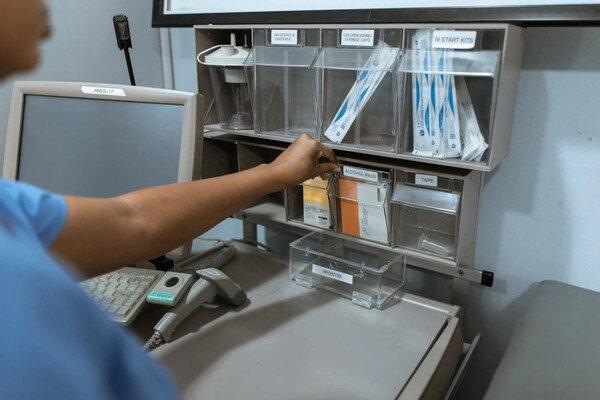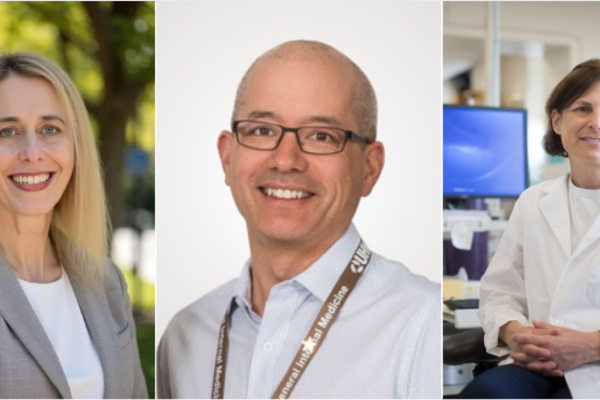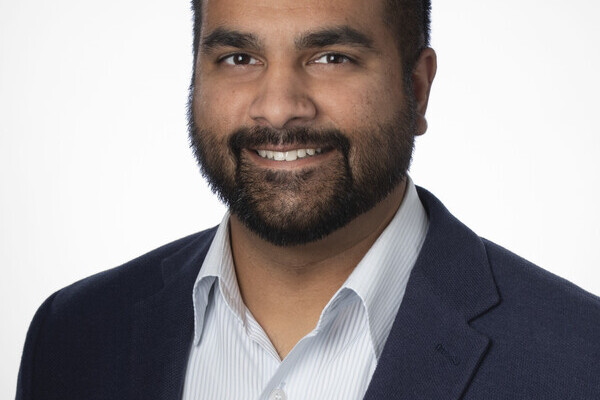Main Second Level Navigation
- Welcome
- Why Toronto?
- History of the Department
- Vision & Strategic Priorities
- Our Leadership
- Our Support Staff
- Location & Contact
- Departmental Committees
- Department of Medicine Prizes & Awards
- Department of Medicine Resident Awards
- Department of Medicine: Self-Study Report (2013 - 2018)
- Department of Medicine: Self-Study Report (2018 - 2023)
- Communication Resources
- News
- Events
The Clinician Scientist in 2023: Where are we now?
By Dr. Mamatha Bhat
Since its inception, the Department of Medicine’s Eliot Phillipson Clinician-Scientist Training Program has trained over 110 clinician-scientists (CS). Whereas the traditional CS was thought of as a physician-researcher performing bench-to-bedside research, the last few decades have seen significant expansion in the kinds of impactful research pursued in the field. Our department has greatly benefited from the different perspectives brought about by those CS engaged in health services research, education, quality improvement, and translational research. Patient interactions often inspire these different types of research, and the CS plays a critical role in addressing questions that will be translatable to tangible benefits in patient care. The CS is also able to cross-collaborate with PhD scientists to drive forward incredible research across the clinical spectrum.
As Director of the Department of Medicine’s Clinician Scientist Training program, I believe it is important to adapt to the changing realities in funding, clinical and personal considerations. In recent years, we have seen the scales shift away from the basic and translational sciences. Science has become more and more complex, and it is difficult to keep up to date on the progress in different fields. Moreover, basic science research requires a significant amount of additional training with no guarantee of publishing in the end. Whether financially unfeasible or in conflict with familial, clinical, or external obligations – additional training is a significant hurdle. While our clinical practice is becoming even more complex, there have been increasing barriers to funding for all researchers.
From my perspective as a clinician scientist, we also need to begin to break away from the “one project” tradition that is no longer realistic in our current context. As clinician scientists, we have the unique ability to perform research that can directly lead to clinical utility, and we should be open to interdisciplinary collaborations. Given our current climate of constrained resources, we need to be open to diversification of both projects (clinical, translational and preclinical) and of funding sources.
So how do we fix this? At a department level, we’re not only examining the barriers to CS training and academic careers, and thinking about how we can address them in real and meaningful ways. We also need to examine how we can support individuals from equity-seeking groups in their pursuit of CS academic careers acknowledging the additional and systemic barriers they may face. Across the spectrum, mentorship plays a key role in this equation. Mentors serve as a model of the varied ways a clinician scientist can practice medicine and conduct research and as a navigational guide for others as they consider what opportunities might lie ahead for them in an academic career. I believe it is also important for us to be flexible and adapt to the changing realities and see where each individual CS can have the most impact. For a CS with interest in establishing a lab, we need to develop solid strategies to support them in this changing world.
The CS is an integral part of the academic medical world. At both the department and broader Temerty Faculty of Medicine level, we are committed to understanding and addressing existing barriers to the program so that we might improve upon and inspire future trainees into the world of the practicing Clinician Scientist.
About the Author
Dr. Mamatha Bhat is the Director of the Eliot Philipson Clinician Scientist Training Program in the Department of Medicine and a Hepatologist and Clinician-Scientist at University Health Network’s Ajmera Transplant Centre. The goal of Dr. Bhat’s translational research program is to improve long-term outcomes of liver transplantation through a precision medicine approach using tools of Artificial Intelligence with bioinformatics to personalize the care of liver transplant recipients.



